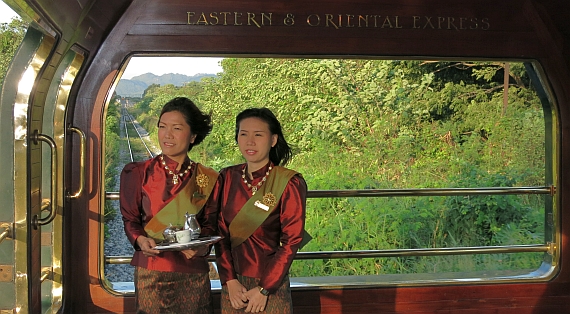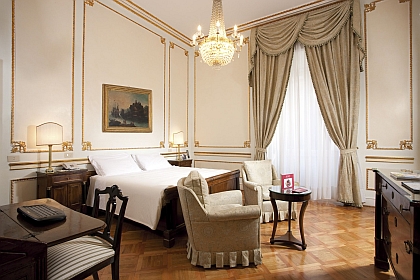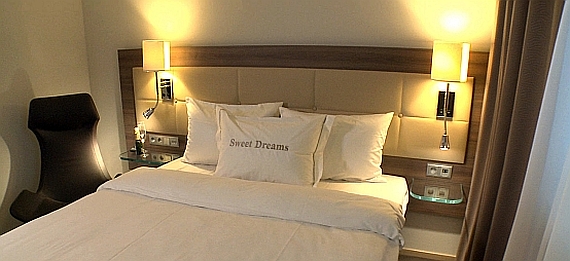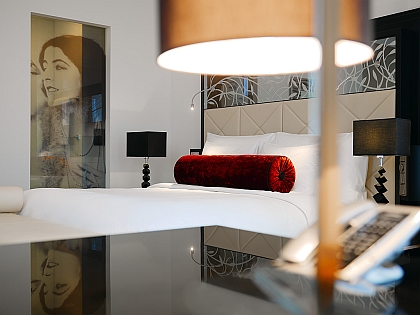
News & Stories
London. Small Luxury Hotels of the World was able to register a new business record for the year 2013: there was an 8-percent increase in room occupancy and a 12-percent increase in revenue compared to 2012.
Berlin. Secret Escapes from London has taken over the Berlin last minute app supplier, JustBook. Both companies announced this on Wednesday. The goal is to offer more mobile and cheaper luxury travel.
Singapore. Luxury train travel is a niche product. But nostalgia alone can no longer fill the trains. The "Eastern & Oriental Express", Asian scion of the legendary luxury group Orient-Express Hotels Ltd. also recognises this. Now a careful turn in strategy should provide for a new tempo on the Asian rails. Nicolas Pillet has drawn responsibility for E&O since the February 1, 2013. The most important job of the 43 year-old: To inspire a younger clientele toward the luxury train. During a train journey, the Frenchman, who was General Manager of the Orient-Express Hotels Ubud Hanging Gardens on Bali up to his change, chatted with our writer, Peter Hinze, about new ideas for a more fresh image, about new routes for one of the most exclusive travel experiences in Asia, about the likely resignation from Singapore, the origin of E&O, and beyond, which is why it is not quite the time to bring Lady Gaga on board yet.
Paris/Berlin. Hôtel Concorde Berlin will become a Sofitel. It will be integrated into the Accor Group under the new name Sofitel Berlin Kurfuerstendamm from the February 1, 2014. With this, Starwood Capital has further propelled the dismantling of the Concorde Group.
Milan. The present year has yet to be finished but Worldhotels is already sure to close 2013 with a double-digit growth rate, at least in terms of rooms sold on behalf of its affiliates. The group is now therefore focusing on the future, planning the launch of its own loyalty program and announcing ambitious expansion goals. Integral part of these projects is the new full-licence agreement, introduced a couple of years ago as an alternative to the most common franchise agreements. In short, Worldhotels is showing a coherent effort to expand its business model from its traditional soft brand style to the shape of The Leading Hotels of the World, and to include components of hospitality chains such as Accor or Carlson Rezidor.
Amerang/Willingen. A model, a new claim, the expansion of the guest card services and a new contribution system should contribute to the expansion and perception of the Familotel Consortium.
Chevy Chase. Ritz-Carlton aims to delight younger guests by making memories that last well. Now the luxury chain launched a new global "Ritz Kids" program and expanded its partnership with the ocean and environmental scientist Jean-Michel Cousteau.
Paris. While the financial community was expecting from him an acceleration of Accor real estate assets sale, Sébastien Bazin, who was pushing that way as a shareholder when he was still the head of Colony Capital Europe, expressed a totally different point of view last Wednesday in Paris during "The Investor Day" conference. Accor's new Ceo came out with an unexpected "road map" based on a new organization, a new executive committee and the review of its real estate strategy. None of it reassured the stock exchange. After the announcement, the Accor title fell by over 7%.
Zurich/Frankfurt. Moxy is expanding slowly: in 2014, the budget brand under Marriott's license will open at three locations; in addition, the brand has been in specific negotiations or exploratory talks regarding eight hotels for 2015. As the presentation of the model room at the "International Investment Forum" in Berlin last March gave people plenty to talk about, the Moxy bosses have remained publicly silent for months. Finally, Ramesh Jackson, Vice President & Global Brand Manager at Moxy, and Markus Lehnert, Vice President Hotel Development at Marriott International, have described the rooms and the expansion plans in more detail. In another interview, Gitta Brueckmann, Area Vice President Central Europe, confirmed that the Marriott's budget baby is attracting wide interest in the market. She said: "It can't happen quickly enough."
Munich. News such as the most recent that from now on, Marriott Hotels is allowing their guests the first mobile check-in at 20 hotels around the globe demonstrates that the mega chain has not stopped working on innovations and implementing them. Up to the Lehman crisis, Marriott had communicated superlative expansion figures only, then the chain became increasingly quieter as to not have to talk about their worsening figures … Slowly they appeared again and not only communicate locations today, but also new qualities, e.g., the new meeting concepts "Next Generation Meeting Spaces".





